
Sustainability reports
In a context of increasing scarcity of natural resources, VINCI intends to limit the carbon footprint of its operations by expanding circularity in them.
Alongside all its stakeholders, the Group is developing solutions to limit the use of virgin raw materials as much as possible and to facilitate materials reuse and recycling.
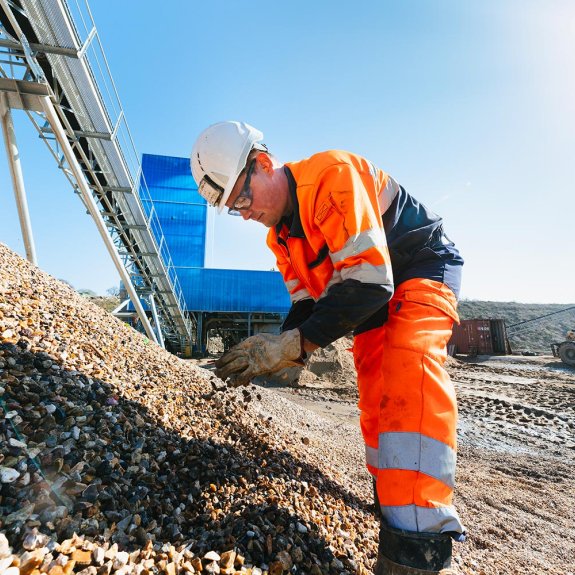
Quick access
As raw materials sourcing is central to our operation, we follow eco-design principles on our projects and employ reused or recycled materials whenever feasible.
Target
100%
of asphalt mix recycled by 2030, of which 45% reused at VINCI Autoroutes’ own worksites
48%
of recycled asphalt mix used at VINCI Autoroutes’ own worksites
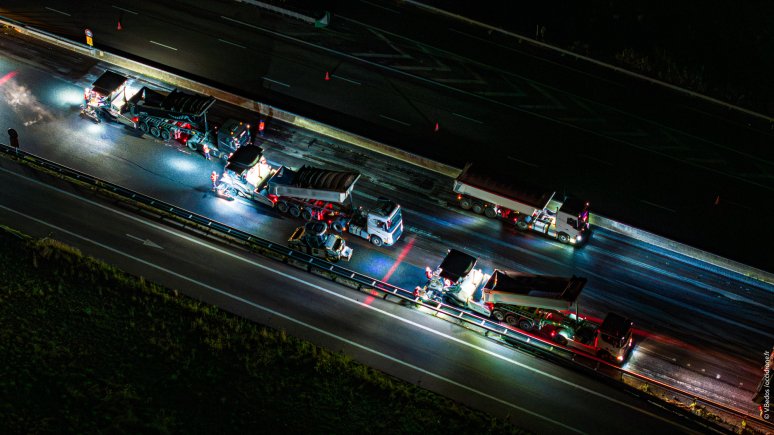
While taking measures on the sourcing side, we are also improving the way we manage our waste and our customers’ waste. The overarching goal is to minimise waste production then reuse or recycle waste whenever possible.
Target
100%
of waste from operations and from service and rest areas directly managed by VINCI Autoroutes recovered for energy or material use by 2025
Target
0
waste to landfill for all concessions
15
sites with zero waste to landfill at VINCI Airports
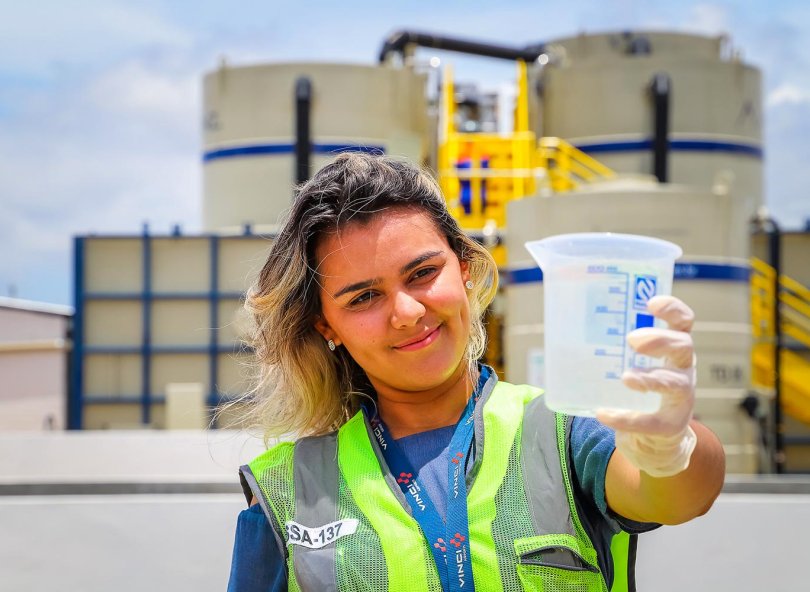
Salvador Bahia airport: recovering 100% of waste
Operated under concession by VINCI Airports since January 2018, Salvador Bahia is the first airport in Brazil to set a target to recover all of its waste. The airport’s large-scale environmental requalification programme included creating a new sorting facility with an optimised waste management system.
All the airport’s waste was recovered in 2020, compared with 1% before VINCI Airports became the concession holder. The programme also focuses on creating a plant to treat all the airport’s wastewater and recycle it in toilets, green areas and airport air-conditioning.
Salvador Bahia received the award for the “Most Sustainable Aerodrome in Brazil” from the country’s civil aviation authority in 2019 and has earned several international honours, including the ACI-LAC Green Airport Recognition Professional Award.
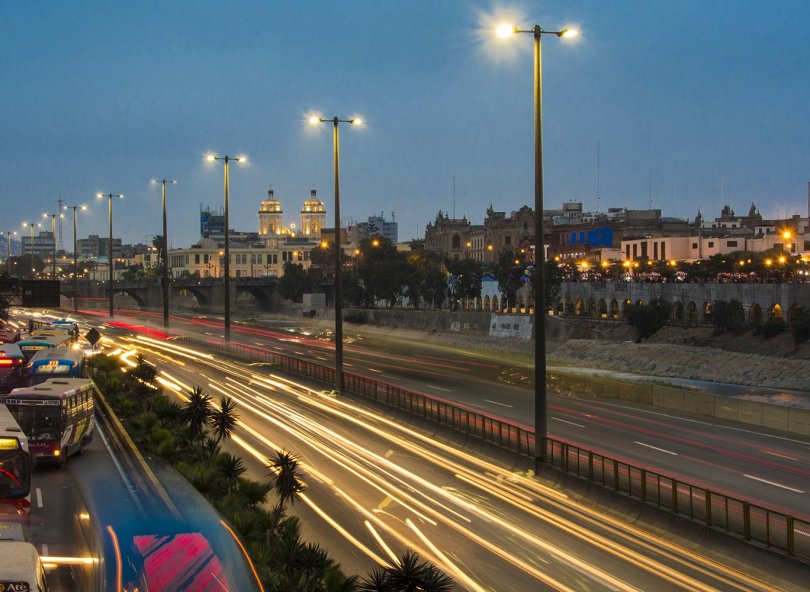
Peru: encouraging motorists to recycle
Pex, the Peruvian automatic toll collection subsidiary of VINCI Highways, allows its users to pay for toll and parking services in Lima by recycling plastic bottles.
Motorists can deposit plastic bottles in a recycling machine which, using artificial intelligence, assesses the value of the materials deposited and automatically assigns “green credits” for each bottle.
Users can check the amount on the mobile app and use their credits to pay for the range of services on offer, such as subscriptions to Lima’s expressways or parking in Real Plaza car parks in the Peruvian capital.

Waste Marketplace: facilitating worksite waste management
Incubated and accelerated by Leonard, our innovation and foresight platform, Waste Marketplace is a digital solution that facilitates management of waste from worksites, operations and industry, and improves waste recycling and traceability at the best possible cost.
In four clicks on the app, a site manager can order waste pickup. The app’s algorithm chooses the best solution for each type of waste from among a network of partners, resulting in a recycling rate of more than 80%. The system automatically generates a report at each stage and guarantees absolute traceability.
Waste Marketplace has already rolled out its solution across more than 1,000 sites since it was set up in 2018 and is seeking to rapidly diversify its client base and business lines.
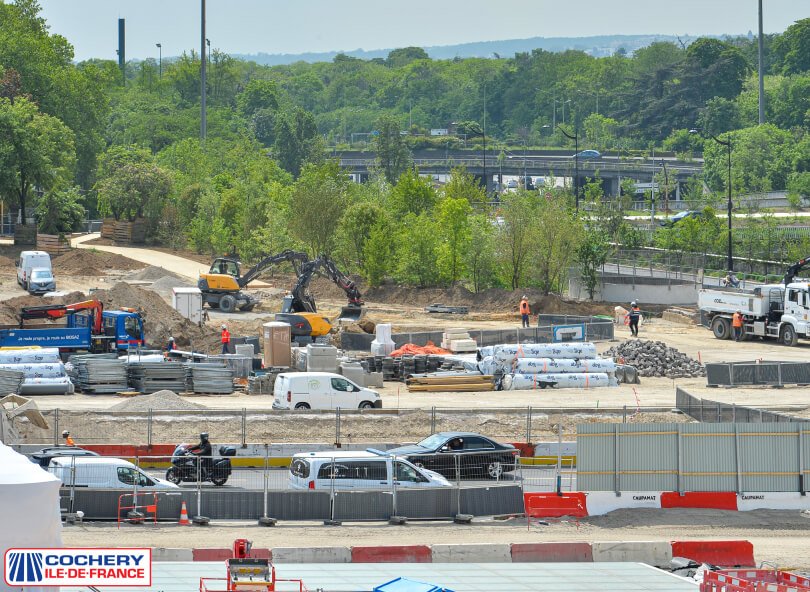
La Ressourcerie: reusing worksite waste
La Ressourcerie is a concrete example of the 3R concept of “reduce, reuse and recycle”, promoting the reuse of materials from finishing works while offering employment opportunities to people on integration programmes.
Initiated through our innovation and foresight platform, Leonard, and a product of VINCI’s intrapreneurship programme, since 2023 La Ressourcerie has been developing its engineering activities for the bidding and construction phases and is committed to organising reuse structures.
Alongside this platform, the R.used initiative aims to develop an app that will list materials and equipment that remain unused at the end of projects, as well as the needs of ongoing and upcoming projects.

Smart waste management: optimising waste collection
Optimising waste management also involves streamlining waste transport. Axians, a VINCI Energies brand, helps its customers optimise waste collection.
For example, in the Netherlands, sensors placed in containers send notifications when the containers are full, so that waste managers can optimise vehicle size and collection routes.
VINCI Construction produces materials, principally in quarries, as part of its overall operation. Its main challenge is to provide suitable alternatives for primary materials by supplying recycled or mixed materials and developing recycling facilities.
Target
20
million tonnes of recycled aggregate produced by VINCI Construction by 2030
16
million tonnes of recycled aggregate in VINCI Construction’s total production
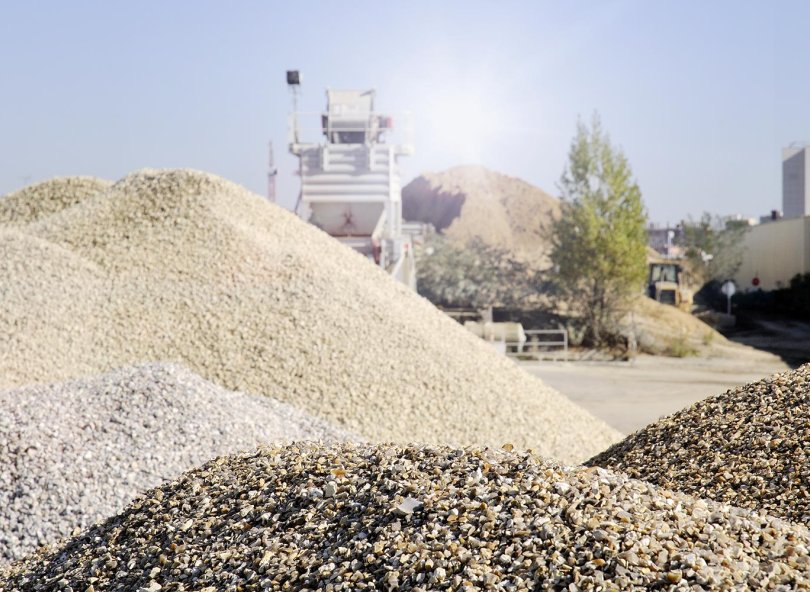
Granulat +: using fewer quarried materials
With 150 Granulat+ sites across France, VINCI Construction offers a range of alternative construction materials. The idea is to use fewer quarried materials by recycling inert waste from demolition works.
Under the Granulat+ brand, in 2023 VINCI Construction launched Ogêo, a new product range made up of primary resources (quarry aggregates) and secondary resources (local materials from deconstruction). Primary and secondary resources are broken down on a case-by-case basis, depending on the needs of each customer and each project. Ogêo products, low-carbon and produced locally, are equivalent or higher in quality than materials made from primary resources alone. This new line is designed to integrate materials into a circular economy loop.

Recycled roads: limiting the footprint of roadworks
The Road Division of VINCI Construction has designed a road renovation process with a very high recycling rate. This technique incorporates 70% recycled aggregates from removed pavement materials. These aggregates are then used locally in the new road surface.
In 2018, a 1 km test section was completed as the world’s first fully recycled road. The process was then applied to road sections (in three French departments: Charente, Charente-Maritime and Vienne) and on the A89 motorway. Eurovia’s methods include using a specific mobile continuous asphalt plant designed in partnership with Marini-Ermont. Its close location to the worksite reduces machine transport and therefore CO2 emissions.
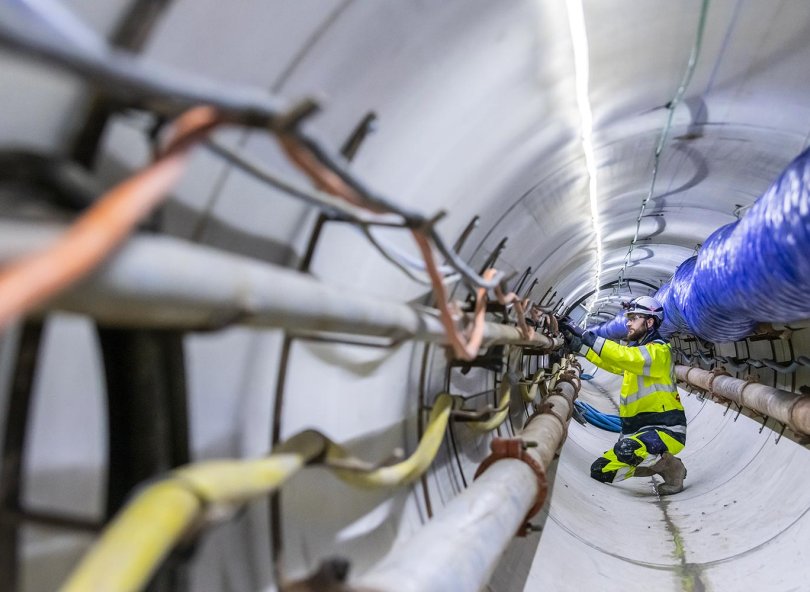
Low-carbon concrete: replacing compounds that emit greenhouse gases
To produce low-carbon concrete from its Exegy® range, VINCI Construction replaces clinker, the main component in traditional cement and largest source of greenhouse gas emissions from concrete, with alternative binders made from blastfurnace slag. This is an industrial by-product from the manufacture of iron. VINCI Construction teamed up with specialist Ecocem to develop an innovative solution that activates the ground slag, increasing the clinker substitution rate to nearly 100%.
Exegy® is a way of recycling blastfurnace slag in concrete that still offers the same technical properties as traditional concrete, and notably the same degree of resistance. For example, it was used for the construction of l’archipel, VINCI Group’s head office, the first time it was used for a building. It was also used for the Line 18 tunnel of the Grand Paris Express, a world first for underground urban transport, on the Universeine project in the Athletes’ Village for the Paris 2024 Olympic and Paralympic Games, and in seven of the 13 buildings within the new hospital complex in Nantes.
At the same time, VINCI Construction is conducting a research and development programme into the suitability of other alternative mineral binders.